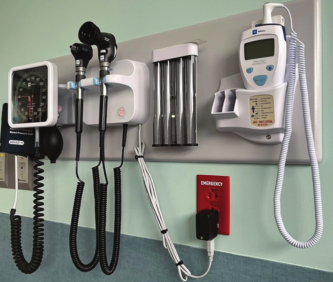But a key recruitment program has been halted
Long-term care providers in New Hampshire say they’re in dire need of more licensed nursing assistants, as staff shortages limit the number of available beds. But a recruitment and training program has been on hold since May, after its funding dried up.
The initiative, New Hampshire Needs Caregivers, helped people who want to become LNAs pay for the training, connect with potential employers and navigate the process of starting their new career. It also aimed to get more people interested in caregiving as a career.
“It’s almost like a one-stop shop for someone that wanted to get into health care,” said Lynn Carpenter, an independent contractor who helped run the program for the nonprofit Southern New Hampshire Area Health Education Center.
New Hampshire Needs Caregivers has had several funding sources since launching in 2020. Most recently, it received funding from federal pandemic aid administered by the state.
But Carpenter said that grant ran out in May. A bill in the state legislature meant to address health care workforce challenges initially included funding to keep the program going, but that was stripped out of the final legislation.
The program’s administrators say they’re waiting to hear back on a request for an additional $1.5 million in funding from the Governor’s Office for Emergency Relief and Recovery, which is distributing the last of the state’s pandemic-related federal funds before the end of the year. That would help about 500 people become LNAs, but the center would settle for less money.
Paula Smith, the health education center’s director, said they currently have a small grant from the Foundation for Seacoast Health to support nine LNA trainees in that part of the state. But that’s a far cry from what the program was previously able to do. According to her and Carpenter, the program put 177 people through training between June 2023 and May 2024 – nearly all of whom now have active licenses as LNAs.
“When you don’t have LNAs working in the field, hospitals are short,” Smith said. And “then they have to keep patients in the hospital, if there’s not enough staff in a nursing home or a rehab facility.”
Smith said the financial assistance and other support was especially helpful for people who can’t afford to pay thousands of dollars up front for training and licensing exams. She said many people who want to start working in health care aren’t traditional students. Some are switching careers, or have recently been unemployed.
“You’re allowing some vulnerable populations that might not have that capacity to do that upfront payment to become an LNA on their own,” she said.
Kerri Dutton runs LNA Health Careers, a training school in Manchester.
It’s one of the places New Hampshire Needs Caregivers sent people for LNA training.
She said the program will leave a big gap if it’s not renewed. While there are other sources of funding for LNA training, she said they don’t offer the same kind of comprehensive support, and many are restricted to certain groups, like school-aged individuals.
“I’m already feeling it,” she said. “We do have decreased enrollment right now at the school.”
— PAUL CUNO-BOOTH/NH PUBLIC RADIO